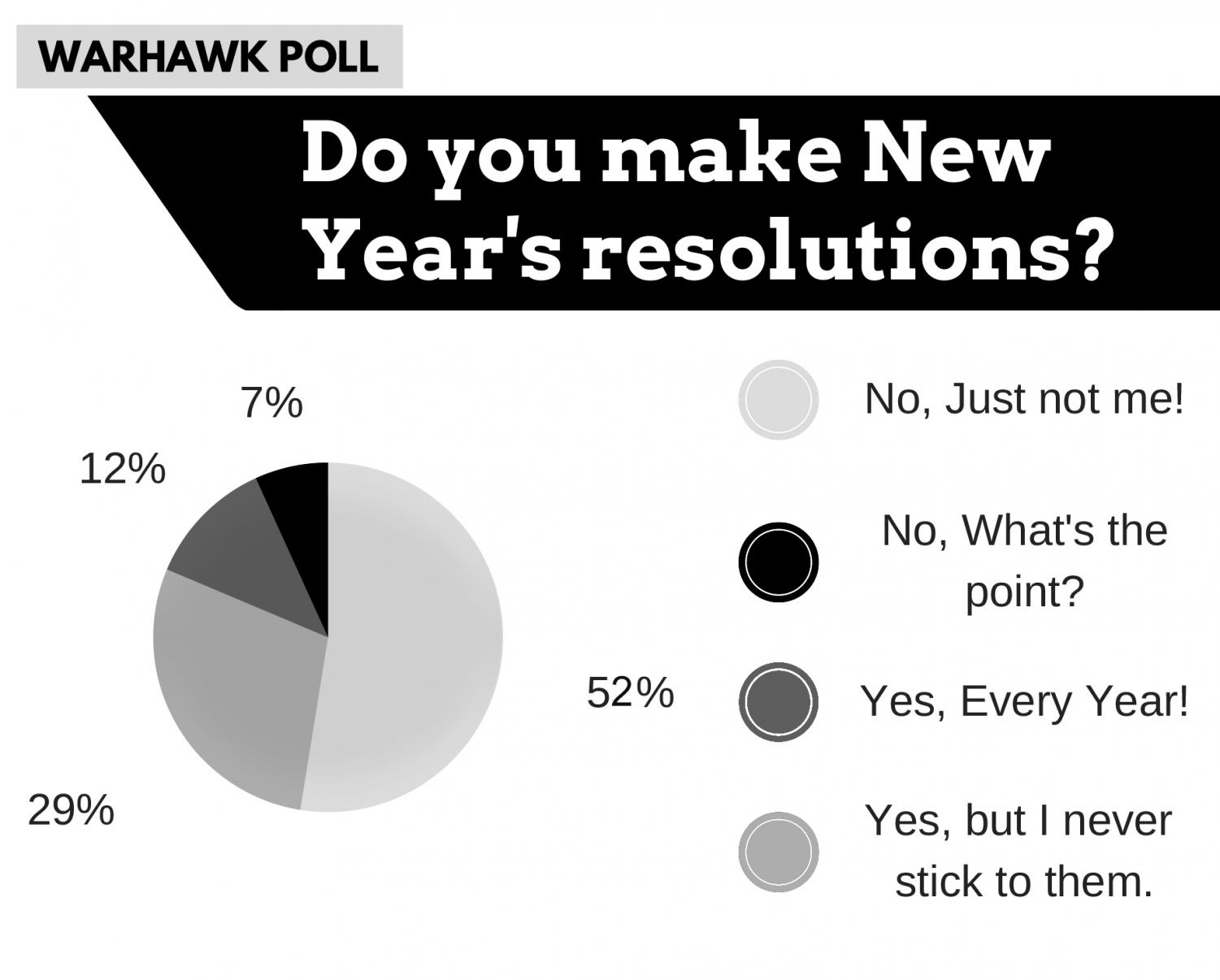New year, new you?
At the start of any new year, it is natural to sit back and reflect on all of the good and bad things that happened the year before.
Upon reflecting on their previous actions, people will decide on what they would like to change about themselves and their lives.
Even though the idea of change is exciting, creating resolutions is easier said than done.
According to Forbes.com, only 40% of people in the world actually stay true to their resolutions.
While many prefer the “new year, new me” cliché, sometimes the best way to a new you is through subtle and slight changes throughout the year.
By doing this, the person you have envisioned will slowly and surely become a reality in your life.
The new year brings thoughts like, “I want to lose weight and go to the gym.”
Maybe the goal is to manage your money better by limiting the amount spent on things wanted and not needed.
You may even want to change your priorities.
Who and what is most important in my life and how can I do better in that area?
The tricky part about new year resolutions is that people begin to think they can only change at the start of a new year.
That is not the case.
Every day is an opportunity to change yourself for the better.
It doesn’t matter if it is written on a list of dos’ and do not’s.
Even with the best intentions, 60 percent of people will fail to stay true to hand-picked resolutions.
Self-improvement is overdone in new year celebrations.
The last days of December bring the ever hip and trendy “goodbye bad habit lists.”
People are so compelled to make huge lists of everything they want to change in the new year.
It ends up resembling a bucket list of sorts and not a person willing to better themselves.
There are so many unhealthy habits to break and it can easily become overwhelming.
Those bad habits are pushed back for next year because surely you will be more prepared then.
This cycle continues with the same result each year unless you can stay consistent and motivated throughout.
For 2018, you probably want to change or resolve some of the same issues you have had every year before.
Instead of bringing a bucket list to the new year’s table, try keeping it simple.
Use baby steps to get to the right “new year, new me” shown in your mind. Change can be a good thing at any given time, but change can be even better throughout a long-term period.
It can be sensible and in your favor to create small, practical changes in life rather than diving in head first.
It doesn’t matter how quickly the change comes but that you eventually meet your goals.
Within one week, almost 75 percent wof people begin to abandon their resolutions.
Those who fail at completing the goals do blame themselves for lacking the willpower to continue until successful.
To avoid this from happening, I encourage you to keep it simple when deciding on a resolution this new year.






